Let Them Reign
Say hello to the kings and queens of Bellingham’s drag scene — kicking ass, taking names, and ushering in a new era of drag
*Editor’s Note: Certain names and details have been omitted due to privacy concerns
By McKenna Hunt
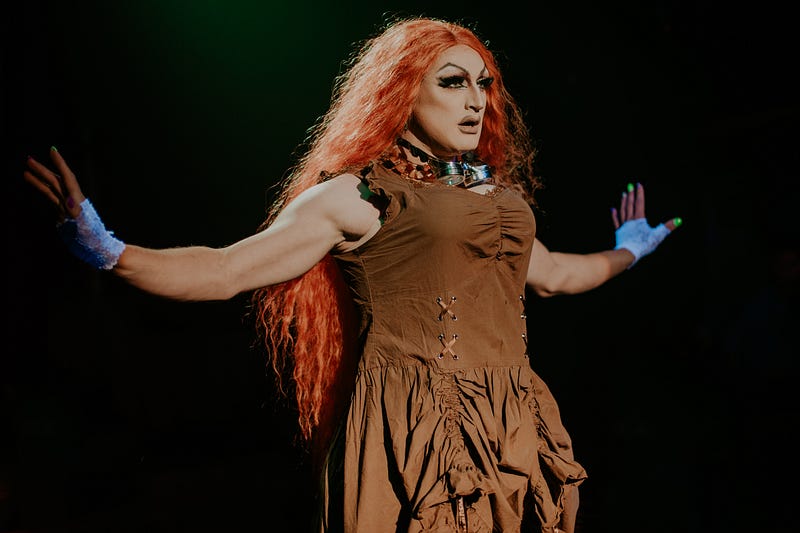
Monday morning, 6 a.m. — Sam is out the door before the light has even grazed the shades of his apartment window. He grabs a bagel and a white mocha americano, stopping to take a deep breath before the laborious week ensues.
As a Western Washington University graduate student and a high school choir teacher, Sam doesn’t have many days off. During the day, he teaches the youth to sing their Do, Re, Mi’s to the highest degree. At night, he works to finish his master’s degree in music education, writing lesson plans and finishing his thesis; that is, unless it’s the third Thursday of every month.
“I’m at a high school Monday through Friday,” Sam says. “But some days — I have a drag show.”
Meet Bertha Baby, a singer, dancer, comedian, and the esoteric alter ego of Sam; Bellingham’s queen of queens. From performing acts about period sex to debunking ideals of what it means to be a drag queen, Bertha Baby keeps it real, on and off stage.
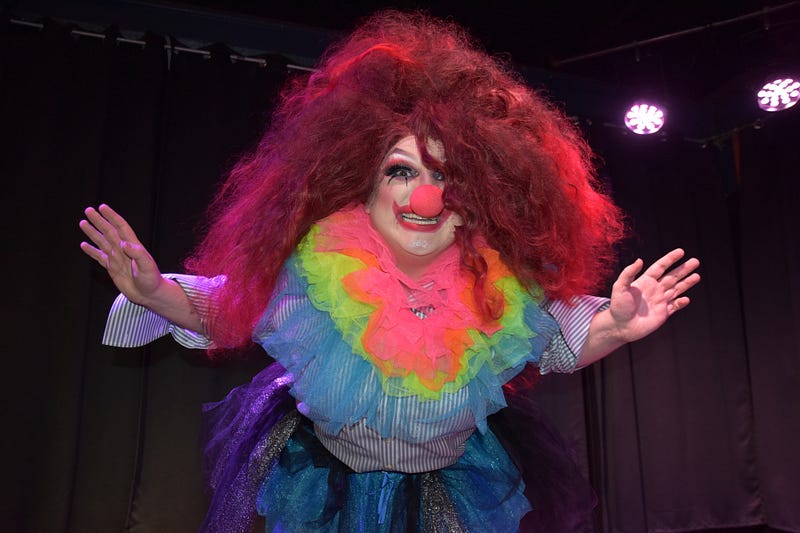
From early on, Sam dreamed of becoming a performer. In fifth grade, his passions began to manifest after he began participating in children’s community theater, eventually climbing the ladder to bigger stages in Seattle. Sam continued to pursue theater and music, but it wasn’t until he made the move from Issaquah to Bellingham in 2017, that he found a new outlet for his creativity — Drag.
“I had heard about drag queens and I thought it was such a cool thing,” Sam said. “So… I got some drugstore makeup and I would just play around with it in my bathroom. I got a cheap wig from Amazon that I would wear and I would feel so incredible.”
As his work began to pile up, Sam realized he needed a hobby, something he could do with his hands. Led by curiosity, he decided to check out a drag show at Bellingham’s LGBTQ+ friendly nightclub, Rumors Cabaret. Quickly realizing what he was missing out on, Sam jumped at the opportunity to dazzle the crowds weekly, hence Bertha Baby was born.
Through the Rumors social sphere, Sam was quickly introduced to many bright and talented faces, including Glamazon Prime and Jack Goff. New to the scene, Sam said he saw their excitement for drag and wanted to help them in any way he could: wig styling, routine practice, whatever it was, Sam was there. “Mother,” eventually became his loose title, as he formed a close-knit family with Jack, Glam, and another drag artist named Kris Gender. Although not blood-related, these self-sought families hold a special place in the drag community and have for ages, according to Sam.
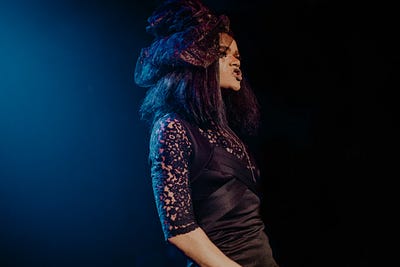
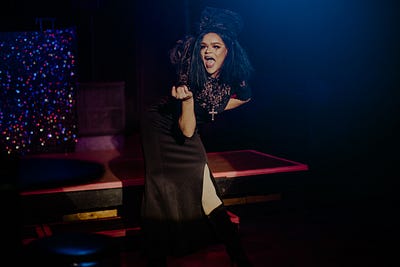
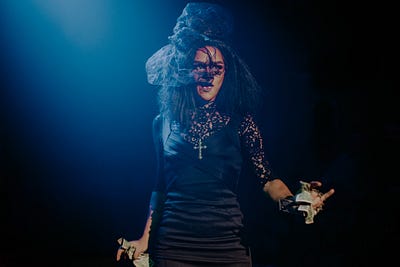
Historically, Jack says, drag families evolved from the ’70s ball culture in New York City. These balls would showcase young black and latinx queer folk competing in various categories of social classes, satirized stereotypical gender portrayals, vogueing, etc., in order to accumulate trophies and status for their house. These houses, defined in Jennie Livingston’s documentary “Paris Is Burning,” were essentially small families that provided a home and sense of belonging for individuals who have been outcasted by their actual families.
Both Glamazon and Jack say that Bertha Baby was one of their first friends in the drag community. They understand each others’ struggles and are always there to provide unconditional support as a family.
After moving from California to Bellingham with their fiance in 2015, Jack says that winding up in drag was only natural given their theatrical background. Jack said they prefer to perform as more masculine characters, but they had no idea drag kings were even an option, until witnessing a king performing at Rumors. Soon after, Jack was center stage.
“For a long time, people defined drag as men dressing up as women but it is so much more,” Sam says. “In the Bellingham community, we actually have more drag kings than we do drag queens.”
The discrepancy lies in trying to provide a concrete definition of drag versus what people assume it is. It’s something that places a lackluster veil of understanding on the diverse complexity that is drag.
“We have so many incredible, smart, powerful drag kings who are making huge moves in our community. We have some really incredible drag queens too, and there’s crossover,” Sam says. “I think that’s one of the most beautiful things about drag is that it can’t be defined.”
Sam, Glam and Jack all agree that drag is so much more than what our heteronormative mainstream society portrays it as.
“Drag wears diverse hats, which makes it so hard to put one defintion on it,” Jack says. “A lot of people don’t even know drag kings or non-binary drag artists exist, but we’re here.”
Jack says drag is more about being theatrical than being sexy or the gravity-defying Death Drops one may witness on Rupaul’s Drag Race. “Drag is about f*cking with gender,” Glam says. “It can only exist because our society is so against that.”
Glam says drag plays a large role in questioning gender and it isn’t suprising to her that queer community rights increase as drag becomes growingly popular. Jack also believes drag has the power to be an educational tool for gender and sexuality, blending the two together and providing children with an enhanced understanding of sexuality earlier on.
“What is drag? It’s a really hard question to answer,” Sam says. “When people normally ask me, I say it’s an expression of queer art. That’s really all I can say.”
The terminology used to describe how someone presents themselves performing in drag, versus what gender they identify as or what sex they were assigned at birth varies, Sam says. However, even those terms are going out of style. He says it’s not about what gender you express, it’s about continuously breaking down barriers and celebrating everyone.
And at “WERQ,” Sam’s newly-created drag show, that is exactly what their goal is.
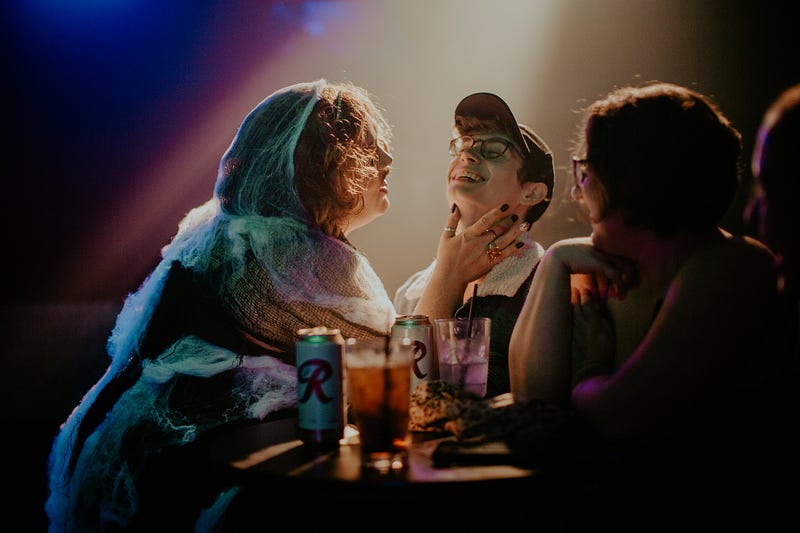
Sam wants “WERQ” to be a place where everyone in Bellingham can feel welcomed, included and safe. The show casts Bertha Baby, Glamazon Prime and Jack Goff to perform every third Thursday of the month at the Firefly Lounge.
Another drag show Sam left his mark on — “Panty Hoes” turned profits into a scholarship fund for queer students at Western with help from the nonprofit Evergreen Empire, starting in 2019. Sam’s work with the scholarship fund coincides with his current thesis on the inclusion of nonbinary and transgender students in secondary classrooms.
Through the Evergreen Empire and Panty Hoes, Sam has helped raise $10,000 for scholarship funds, aiming to reach $20,000 by the end of 2020.
“With that money, there will be a recurring scholarship every year and there will always be scholarship money for queer students,” Sam says.
Upon beginning student teaching this fall, Sam realized he had to free up some hours in order to maintain sanity. So, he handed the reins over to his drag daughter, Glam. After hosting and casting for about 3 months, Glam says it’s been a lot of work but she’s happy about the increasing amount of stages for performers to practice their art.
“We provide performers with less expectations and pressure so they can fully enjoy themselves,” Glam says. “Which is how I would like it to stay, but also make it more of a production with increased interaction between audience and queens.”
“Panty Hoes” and “WERQ” also serve as platforms for performers to tackle hard concepts and debunk cultural taboos around things such as period sex or the realities of birth.
“We look at bodily functions like they are disgusting and they aren’t,” Sam says. ”I think comedy is a great bridge for that.”
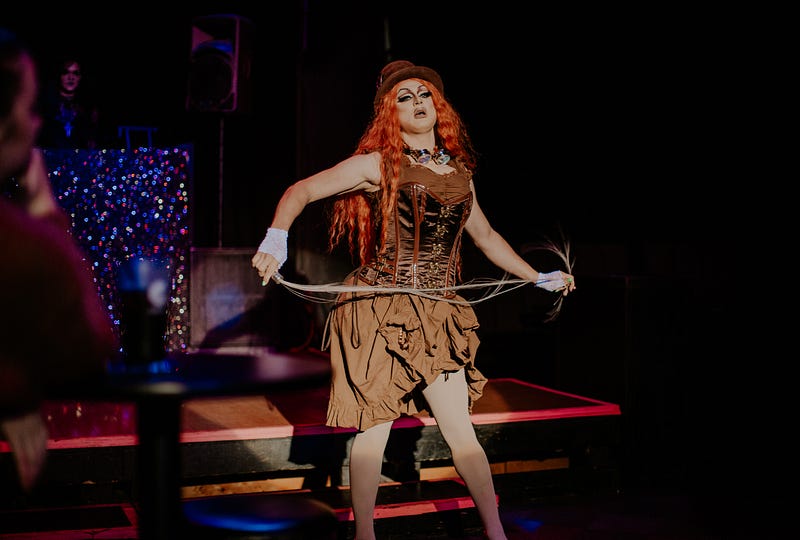
Drag also has the power to tackle hard questions that sometimes as a society, we don’t want to answer.
“Drag is here to say, ‘yeah, I might mess up, but I am going to start this conversation so that other people don’t have to,’” Sam says. ”I think that everybody can benefit from that because the more that we are asking questions and trying to know each other the more of these bridges can be gapped.”
That’s half the beauty of drag, Sam says, the inherent resilience of claiming space and not backing down from being political because the drag communities entire existence is political.
“Drag has historically been glamorized but not respected,” Glam says. “It has been objectified and tokenized, and people don’t really see the vulnerability in the art.”
Political, tokenized, sensational ‒ these things seem to have a direct relationship with drag, but Jack says it’s about time that we tackle these connotations by providing more spaces and greater representation for drag artists everywhere. Glam agrees.
By allowing more spaces and stages that let drag performers exhibit their craft, Glam says the more we are able to de-stigmatize norms and work toward becoming a more supportive society.
As Sam, Jack, and Glam move forward in their careers, on and off the stage, they want people to understand that drag is really about celebrating queer people.
“Just because everybody gets the same treatment, doesn’t mean it’s equal,” Sam says. “You can’t undo the oppression that queer people see everyday. That’s why we need drag.”
